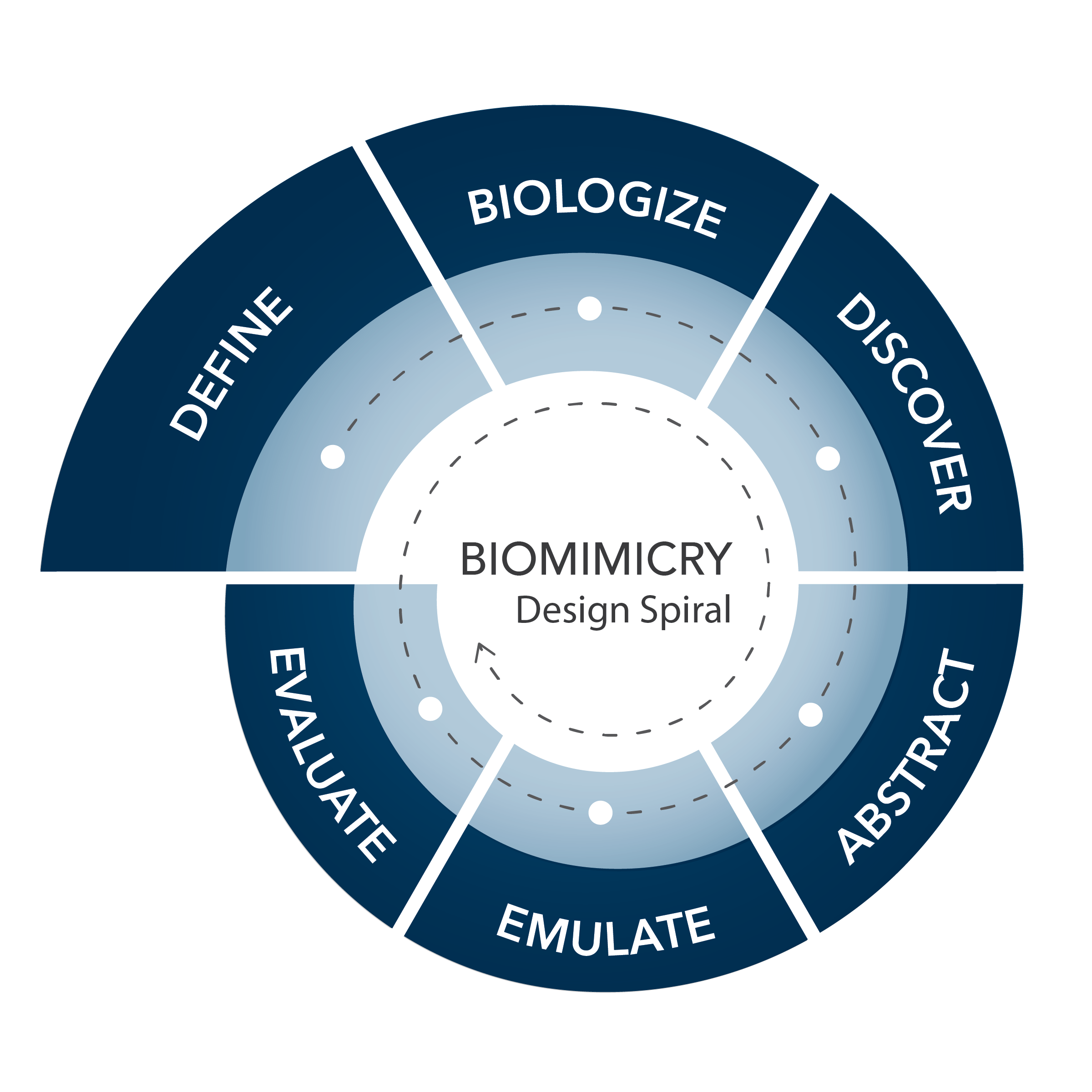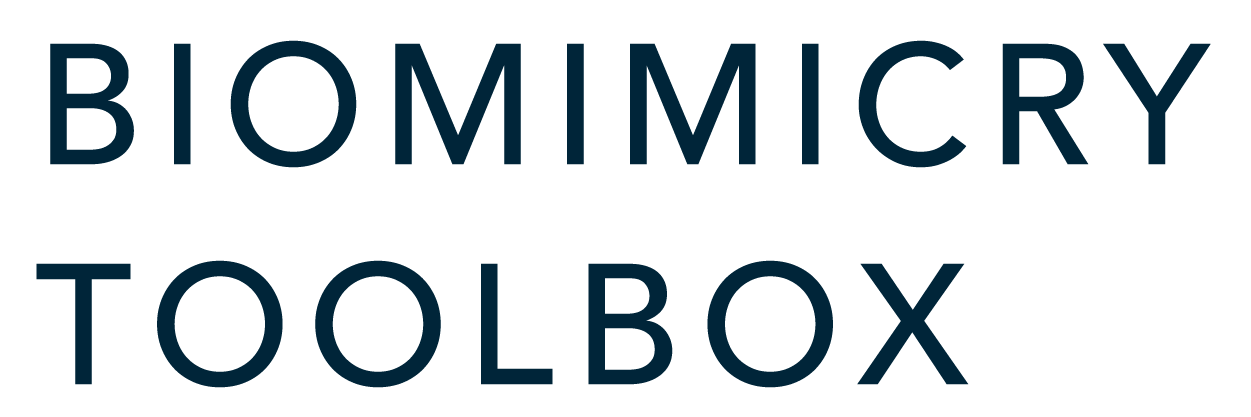Methods
Are you ready to get to work? This section of the Toolbox will walk you through a biomimicry methodology called the Biomimicry Design Spiral. Explore these pages to learn the skills you need to apply inspiration from the natural world to your design challenges.

The Biomimicry Design Process
Begin here for an overview to the Biomimicry Design Spiral. The Biomimicry Design Spiral is a visual tool which describes the six most important steps a design team should take when seeking biomimetic solutions to a design challenge.
1. Define the Challenge
The first step in any design process is to define the problem or opportunity that you want your design to address.
2. Biologize Function and Context
Learn how to reframe your challenge into a biological context, to make it easier to find inspiration in nature.
3. Discover Biological Strategies
Learn where and how to look for biological models and strategies for inspiration.
4. Abstract Design Strategies
Learn how to translate biological strategies into design strategies you can apply to your challenge.
5. Emulate Nature's Lessons
Learn how to begin to apply insights gained from your abstracted design strategies to your design challenge.
6. Evaluate Fit and Function
Explore ways to test your biomimetic ideas and learn from what doesn’t work in order to make your designs better.
Other Pathways to Biomimicry
The Design Spiral isn’t the only way to arrive at a biomimetic solution. Biomimicry can manifest and be practiced in other ways, too, especially once the core concepts and methods of the practice have become second nature. This section explores ways to bring biomimicry into innovation processes.
Photo by Sherry Ritter, CC-BY-NC-ND


